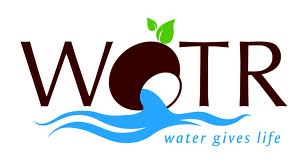Voluntary Citizen or Civil Society Sector
"Launch research initiative to mainstream groundwater into urban water supply" - Arghyam’s inputs to the 2013-14 pre-budget consultation of the Finance Minister with social sector groups
Posted on 21 Jan, 2013 05:54 PMThese were the inputs given by Rohini Nilekani, Chairperson, Arghyam, to the Finance Minister at the pre-budget consultation event that took place on 4th January, 2013.
Green Sanitation Foundation, an NGO in Kolkata develops biotoilets, a unique toilet technology
Posted on 21 Jan, 2013 12:01 PMBiotoilets are biological toilets, named so because they convert human waste into non toxic, non contaminating water compatible with environmental standards, through application of multi strain bacteria culture, using aerobic forms of bacteria.
Building a coalition for the defense and nurturance of biodiversity - Side-event by SADED at the United Nations Convention on Biological Diversity, CoP-XI, Hyderabad
Posted on 21 Jan, 2013 11:12 AMThis side event at the Convention on Biological Diversity, CoP-XI, Hyderabad on 16th October, 2012 was organized by South Asian Dialogues on Ecological Democracy (SADED) in collaboration with Collective for Self Learning on Biodiversity, Beyond Copenhagen, Center for Local Health Traditions, CECOEDECON, Harit Swaraaj, Kisan Swar
Process of formation of Jajmau Area Water Partnership in Kanpur, Uttar Pradesh – Problems and solutions
Posted on 13 Jan, 2013 12:01 PMIndustrial effluents and sewage water are being diverted to the river Ganga by the cities and towns through which it passes. Nestled on the banks of Ganga, Kanpur, a highly urbanized and industrial city is polluting it most. Apart from the Government of India’s recently constituted National Ganga River Basin Authority, civil societies and NGOs too are putting rigorous efforts to make Ganga pollution free. Though the city has several big and small industries, the leather industries located in Jajmau, the oldest part of the city add to the problem of pollution in the river to a large extent.
Studying climate change in India- A book review in Economic and Political Weekly
Posted on 12 Jan, 2013 10:44 PMThis article in Economic and Political Weekly is a review of the edited book Handbook of Climate Change and India: Development, Politics and Governance by Navroz Dubash. The author of the article states that the book is an important addition to the body of knowledge on the subject of climate change. The articles in the book are written from diverse view points by authors who are activists, researchers, diplomats, policymakers, and politicians.
Livolink Foundation invites applications for the post of Civil Engineer for its national Diversion Based Irrigation programme - Apply by January 31, 2013
Posted on 12 Jan, 2013 10:29 PMPlace of work
The position will be based in the office of Livolink Foundation, Bhubaneswar, with extensive travel to project locations of the partner organizations across the country. Candidates must be willing to stay in the project/rural locations on short term basis, as and when required.
About Livolink Foundation
Livolink is committed to enhance the socio-economic status of the vulnerable and marginal communities across the country through promoting appropriate prototypes, design technologies related to development and popularizing their application in the field and involved in monitoring and implementation of new and innovative developmental projects financed by government and donor agencies.
The organization assists development agencies at the grassroots by offering know-how, technical guidance, managerial and organizational development support in the areas of poverty alleviation, rural livelihoods, natural resource management, irrigation, habitat and environment and other intervention sectors for the purpose of promoting sustainable and self-reliant social, economic, ecological and human development.
For expanding initiatives of the DBI Secretariat, the organization wishes to appoint a Civil Engineer for its national DBI programme.
Mobiles come to the aid of farmers in Maharashtra, and help give locale-specific agro-advisories
Posted on 12 Jan, 2013 03:56 PM
Traditional diversion-based phad irrigation systems help mitigate risk of crop failure in the drought-prone farmer suicide belt of Vidarbha, Maharashtra
Posted on 11 Jan, 2013 11:56 AMMany of these systems (1) continue to function and are often more sustainable, cost-effective and successfully managed by local institutions. Phads are one such community-based and managed diversion irrigation management system (2) prevailing in the north-western part of Maharashtra and date back to the early 16th century as per historical accounts. The system is prevalent in the Tapi basin on rivers the Panjhra, Mosam and Aram in Dhule and Nashik districts (3).
Phads or diversion-based irrigation systems, are being revived and promoted in Vidarbha region of Maharashtra by Dilasa, a Yavatmal-based voluntary development organisation (Video courtesy: Dilasa)
Increasing rice yields and saving water: Lessons for policy and practice: Bi monthly update from SRI-India Network for November - December 2012
Posted on 11 Jan, 2013 07:50 AMIncreasing rice yields and saving water: Lessons for policy and practice - The System of Rice Intensification (SRI)






